Comcast 2014 Annual Report Download - page 24
Download and view the complete annual report
Please find page 24 of the 2014 Comcast annual report below. You can navigate through the pages in the report by either clicking on the pages listed below, or by using the keyword search tool below to find specific information within the annual report.-
 1
1 -
 2
2 -
 3
3 -
 4
4 -
 5
5 -
 6
6 -
 7
7 -
 8
8 -
 9
9 -
 10
10 -
 11
11 -
 12
12 -
 13
13 -
 14
14 -
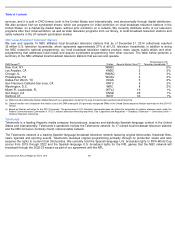 15
15 -
 16
16 -
 17
17 -
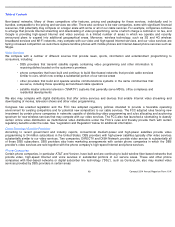 18
18 -
 19
19 -
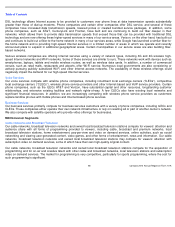 20
20 -
 21
21 -
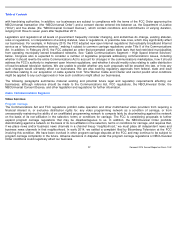 22
22 -
 23
23 -
 24
24 -
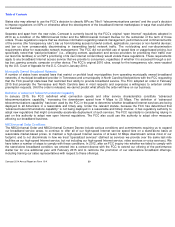 25
25 -
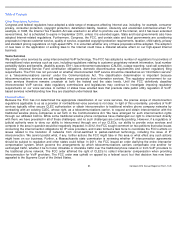 26
26 -
 27
27 -
 28
28 -
 29
29 -
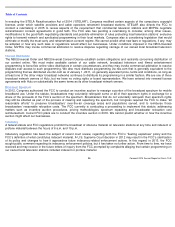 30
30 -
 31
31 -
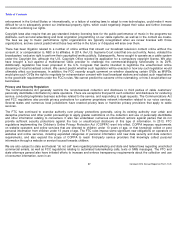 32
32 -
 33
33 -
 34
34 -
 35
35 -
 36
36 -
 37
37 -
 38
38 -
 39
39 -
 40
40 -
 41
41 -
 42
42 -
 43
43 -
 44
44 -
 45
45 -
 46
46 -
 47
47 -
 48
48 -
 49
49 -
 50
50 -
 51
51 -
 52
52 -
 53
53 -
 54
54 -
 55
55 -
 56
56 -
 57
57 -
 58
58 -
 59
59 -
 60
60 -
 61
61 -
 62
62 -
 63
63 -
 64
64 -
 65
65 -
 66
66 -
 67
67 -
 68
68 -
 69
69 -
 70
70 -
 71
71 -
 72
72 -
 73
73 -
 74
74 -
 75
75 -
 76
76 -
 77
77 -
 78
78 -
 79
79 -
 80
80 -
 81
81 -
 82
82 -
 83
83 -
 84
84 -
 85
85 -
 86
86 -
 87
87 -
 88
88 -
 89
89 -
 90
90 -
 91
91 -
 92
92 -
 93
93 -
 94
94 -
 95
95 -
 96
96 -
 97
97 -
 98
98 -
 99
99 -
 100
100 -
 101
101 -
 102
102 -
 103
103 -
 104
104 -
 105
105 -
 106
106 -
 107
107 -
 108
108 -
 109
109 -
 110
110 -
 111
111 -
 112
112 -
 113
113 -
 114
114 -
 115
115 -
 116
116 -
 117
117 -
 118
118 -
 119
119 -
 120
120 -
 121
121 -
 122
122 -
 123
123 -
 124
124 -
 125
125 -
 126
126 -
 127
127 -
 128
128 -
 129
129 -
 130
130 -
 131
131 -
 132
132 -
 133
133 -
 134
134 -
 135
135 -
 136
136 -
 137
137 -
 138
138 -
 139
139 -
 140
140 -
 141
141 -
 142
142 -
 143
143 -
 144
144 -
 145
145 -
 146
146 -
 147
147 -
 148
148 -
 149
149 -
 150
150 -
 151
151 -
 152
152 -
 153
153 -
 154
154 -
 155
155 -
 156
156 -
 157
157 -
 158
158 -
 159
159 -
 160
160 -
 161
161 -
 162
162 -
 163
163 -
 164
164 -
 165
165 -
 166
166 -
 167
167 -
 168
168 -
 169
169 -
 170
170 -
 171
171 -
 172
172 -
 173
173 -
 174
174 -
 175
175 -
 176
176 -
 177
177 -
 178
178 -
 179
179 -
 180
180 -
 181
181 -
 182
182 -
 183
183 -
 184
184 -
 185
185 -
 186
186 -
 187
187 -
 188
188 -
 189
189 -
 190
190 -
 191
191 -
 192
192 -
 193
193 -
 194
194 -
 195
195 -
 196
196 -
 197
197 -
 198
198 -
 199
199 -
 200
200 -
 201
201 -
 202
202 -
 203
203 -
 204
204 -
 205
205 -
 206
206 -
 207
207 -
 208
208 -
 209
209 -
 210
210 -
 211
211 -
 212
212 -
 213
213 -
 214
214 -
 215
215 -
 216
216 -
 217
217 -
 218
218 -
 219
219 -
 220
220 -
 221
221 -
 222
222 -
 223
223 -
 224
224 -
 225
225 -
 226
226 -
 227
227 -
 228
228 -
 229
229 -
 230
230 -
 231
231 -
 232
232 -
 233
233 -
 234
234 -
 235
235 -
 236
236 -
 237
237 -
 238
238 -
 239
239 -
 240
240 -
 241
241 -
 242
242 -
 243
243 -
 244
244 -
 245
245 -
 246
246 -
 247
247 -
 248
248 -
 249
249 -
 250
250 -
 251
251 -
 252
252 -
 253
253 -
 254
254 -
 255
255 -
 256
256 -
 257
257 -
 258
258 -
 259
259 -
 260
260 -
 261
261 -
 262
262 -
 263
263 -
 264
264 -
 265
265 -
 266
266 -
 267
267 -
 268
268 -
 269
269 -
 270
270 -
 271
271 -
 272
272 -
 273
273 -
 274
274 -
 275
275 -
 276
276 -
 277
277 -
 278
278 -
 279
279 -
 280
280 -
 281
281 -
 282
282 -
 283
283 -
 284
284 -
 285
285 -
 286
286 -
 287
287 -
 288
288 -
 289
289 -
 290
290 -
 291
291 -
 292
292 -
 293
293 -
 294
294 -
 295
295 -
 296
296 -
 297
297 -
 298
298 -
 299
299 -
 300
300 -
 301
301 -
 302
302 -
 303
303 -
 304
304 -
 305
305 -
 306
306 -
 307
307 -
 308
308 -
 309
309 -
 310
310 -
 311
311 -
 312
312 -
 313
313 -
 314
314 -
 315
315 -
 316
316 -
 317
317 -
 318
318 -
 319
319 -
 320
320 -
 321
321 -
 322
322 -
 323
323 -
 324
324 -
 325
325 -
 326
326 -
 327
327 -
 328
328 -
 329
329 -
 330
330 -
 331
331 -
 332
332 -
 333
333 -
 334
334 -
 335
335 -
 336
336 -
 337
337 -
 338
338 -
 339
339 -
 340
340 -
 341
341 -
 342
342 -
 343
343 -
 344
344 -
 345
345 -
 346
346 -
 347
347 -
 348
348 -
 349
349 -
 350
350 -
 351
351 -
 352
352 -
 353
353 -
 354
354 -
 355
355 -
 356
356 -
 357
357 -
 358
358 -
 359
359 -
 360
360 -
 361
361 -
 362
362 -
 363
363 -
 364
364 -
 365
365 -
 366
366 -
 367
367 -
 368
368 -
 369
369 -
 370
370 -
 371
371 -
 372
372 -
 373
373 -
 374
374 -
 375
375 -
 376
376 -
 377
377 -
 378
378 -
 379
379 -
 380
380 -
 381
381 -
 382
382 -
 383
383 -
 384
384 -
 385
385 -
 386
386
 |
 |

Table of Contents
diction, franchises typically last for a fixed term, obligate the franchisee to pay franchise fees and meet service quality, customer
service and other requirements, and are terminable if the franchisee fails to comply with material provisions. The Communications
Act permits franchising authorities to establish reasonable requirements for public, educational and governmental access (“PEG”
)
programming, and some of our franchises require substantial channel capacity and financial support for this programming. The
Communications Act also contains provisions governing the franchising process, including, among other things, renewal
procedures designed to protect incumbent franchisees against arbitrary denials of renewal. We believe that our franchise renewal
prospects are generally favorable, but cannot guarantee the future renewal of any individual franchise.
Approximately half of the states in which we operate have enacted legislation to provide statewide franchising or to simplify local
franchising requirements for new entrants. Some of these statutes also allow new entrants to operate on more favorable terms than
our current operations, for instance by not requiring that the new entrant provide service to all parts of the franchise area or
permitting the new entrant to designate only those portions it wishes to serve. Certain of these statutes allow incumbent cable
operators to opt into the new state franchise immediately or later when a competing state franchise has been issued for the
incumbent cable operator’
s franchise area. However, even in those states, the incumbent cable operators sometimes are required
to retain certain franchise obligations that are more burdensome than the new entrant’s state franchise.
High-Speed Internet Services
We provide high-speed Internet services over our cable distribution system. Our high-
speed Internet services are subject to a
number of regulatory obligations, including compliance with the Communications Assistance for Law Enforcement Act (“CALEA”
)
requirement that high-speed Internet service providers (“ISPs”)
implement certain network capabilities to assist law enforcement in
conducting surveillance of persons suspected of criminal activity, and the FCC is considering new requirements for ISPs.
Open Internet Regulations
In February 2015, the FCC adopted new open Internet regulations but the text of the order has not been released yet. The FCC
announced that the order reclassifies broadband Internet access service as a “telecommunications service,”
making it subject to
common carrier regulation under Title II of the Communications Act. The FCC, however, has indicated that the order will forbear
from a number of utility-
style regulations, such as rate regulation, tariffs, and unbundling requirements. The FCC also announced
that the order adopts rules that bar ISPs from blocking access to lawful content, applications, services or non-
harmful devices;
prohibits ISPs from impairing or degrading lawful Internet traffic on the basis of content, applications, services, or impairing or
degrading the use of non-
harmful devices; prohibits ISPs from favoring some lawful Internet traffic over other lawful traffic in
exchange for consideration (i.e., no paid prioritization); prohibits ISPs from prioritizing Internet content and services of their
affiliates; establishes a new general conduct standard that prohibits ISPs from unreasonably interfering with or unreasonably
disadvantaging the ability of consumers to select, access, and use the lawful content, applications, services, or devices of their
choosing or of edge providers to make lawful content, applications, services, or devices available to consumers; and expands the
FCC’
s current Internet transparency rules. In addition, the FCC explained that the agency has now asserted jurisdiction, for the first
time, over Internet traffic exchange, so interconnection arrangements will now be subject to a statutory requirement that all charges,
practices, classifications, and regulations for and in connection with interconnection must be just and reasonable. All of these
requirements will be subject to FCC enforcement and potential third-party claims for damages or equitable relief.
Until the order is released, we are unable to determine what specific requirements will apply to our business or how they will apply
to our business, nor can we predict what the impact of such requirements would be on our business.
19
Comcast 2014 Annual Report on Form 10
-
K
